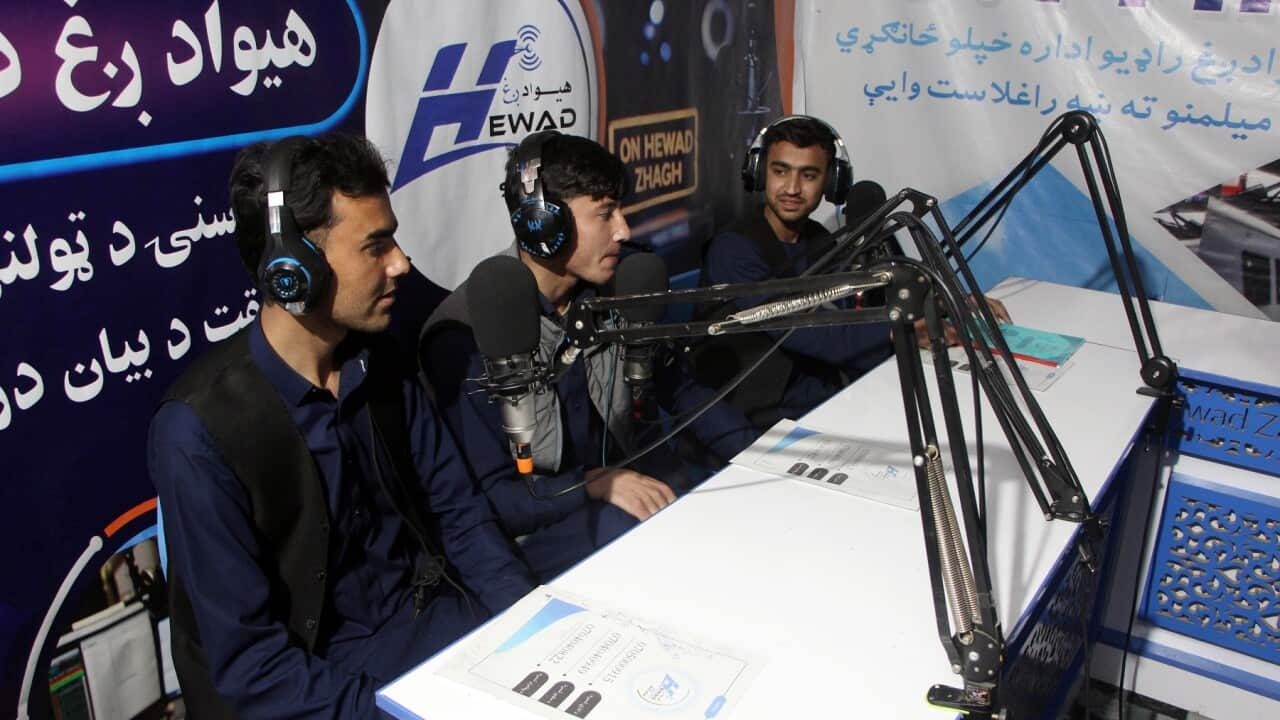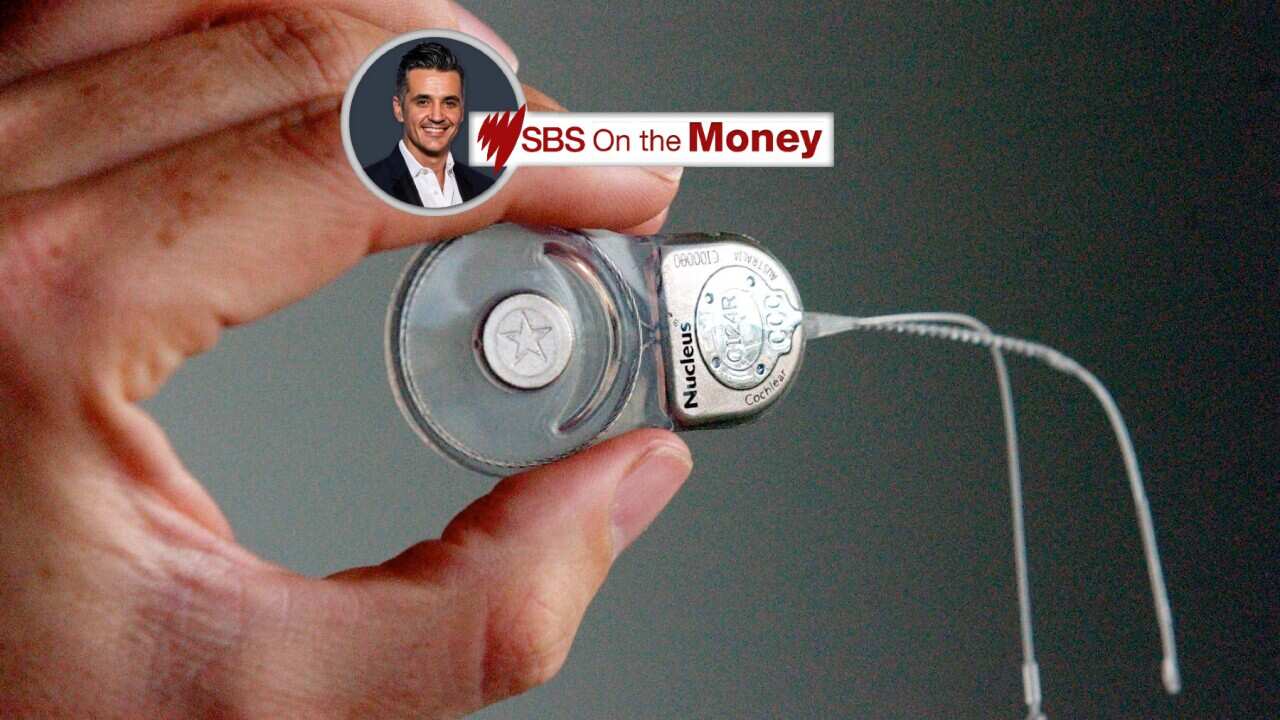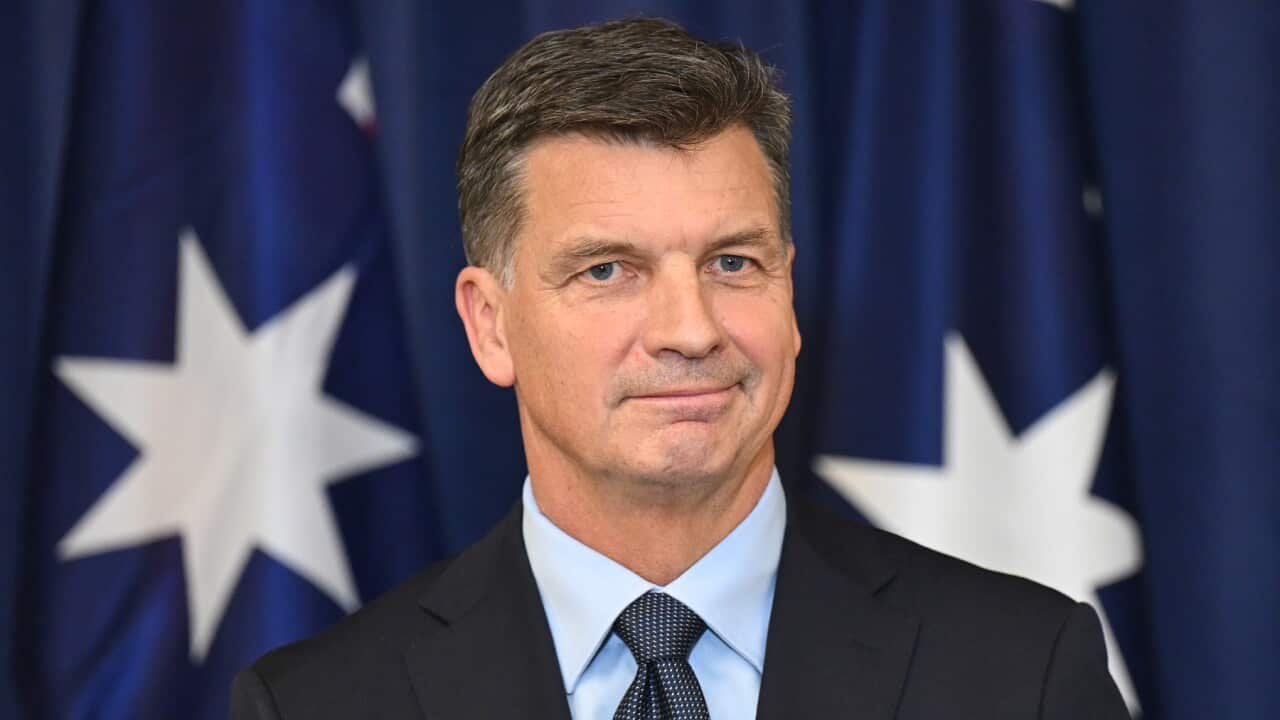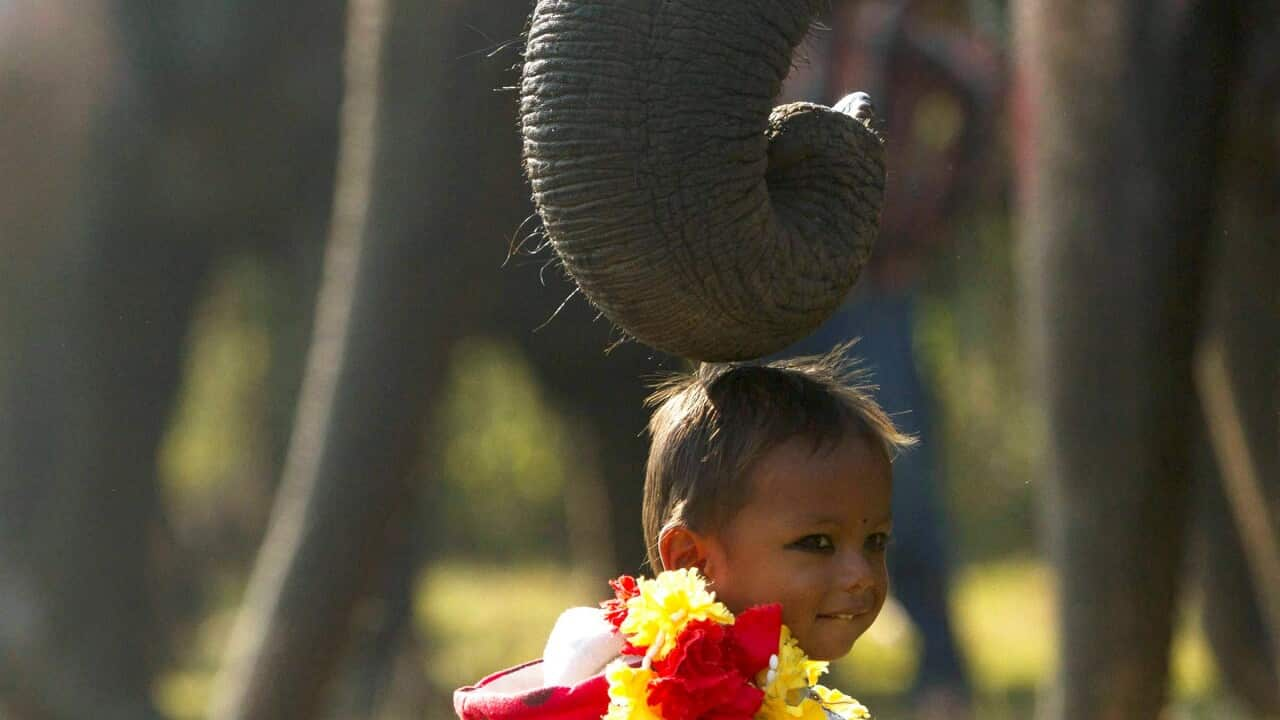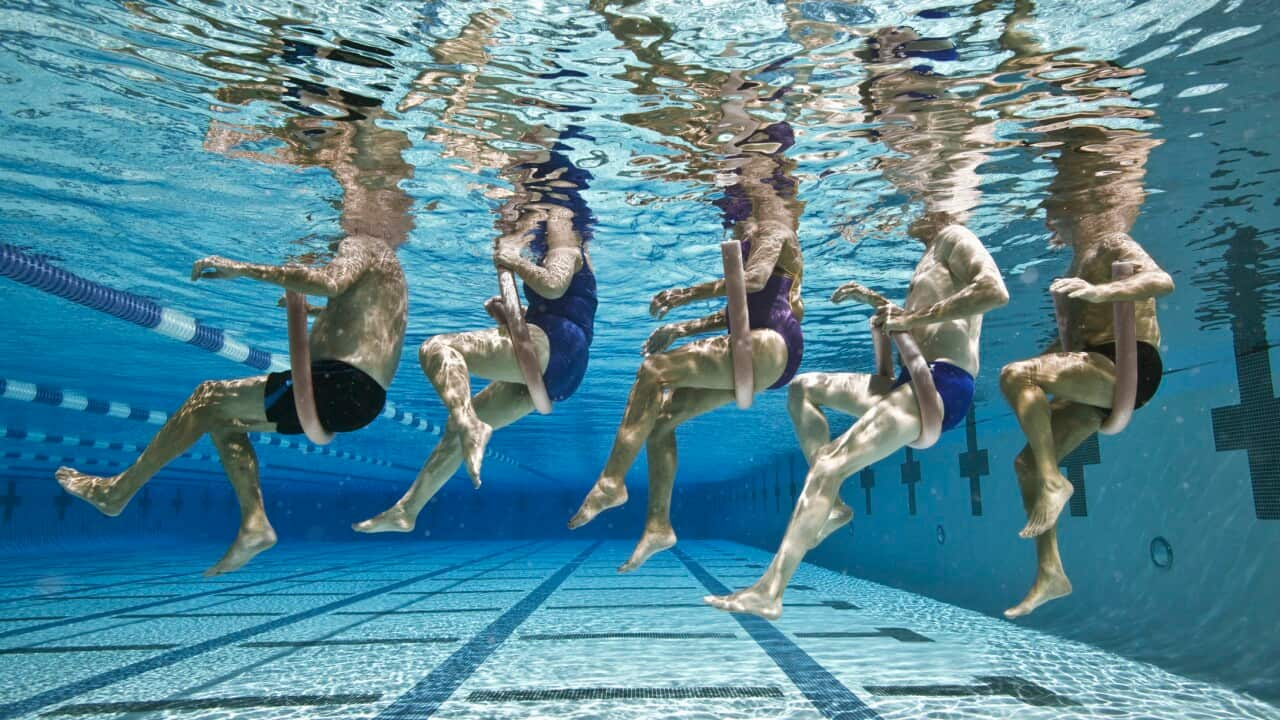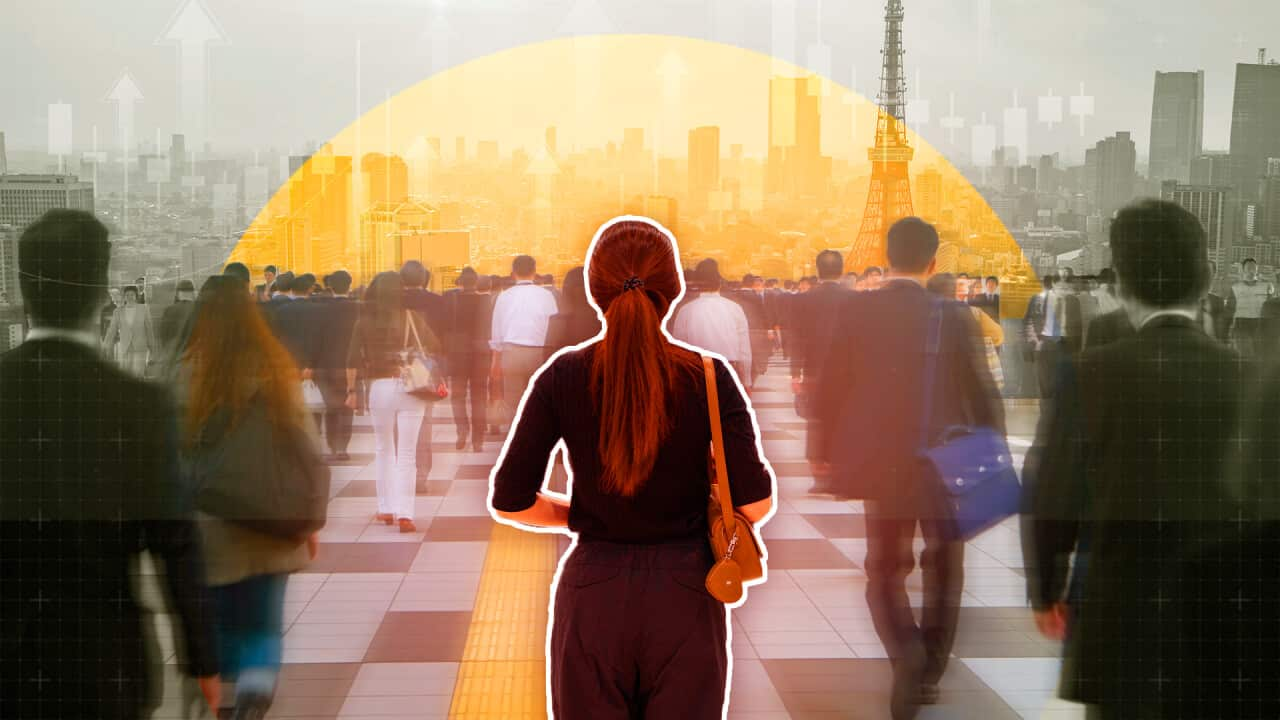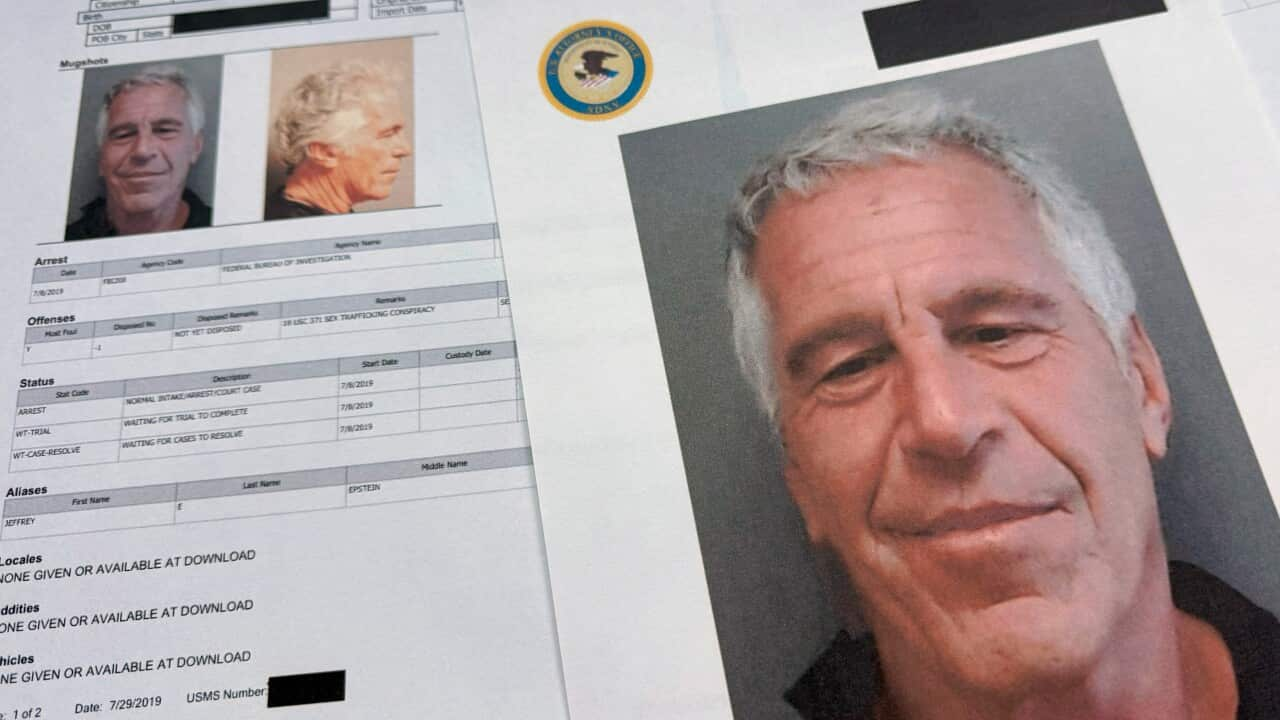Listen to Australian and world news, and follow trending topics with SBS News Podcasts.
TRANSCRIPT
Australia is a global frontrunner when it comes to solar adoption.
More than 4.3 million homes and small businesses have installed rooftop solar panels, with around 1,000 new systems being installed each day.
With the impacts of climate change worsening and experts warning that renewables must replace fossil fuels, the switch to solar energy is crucial.
Without a domestic supply chain, though, Australia is importing around 90 per cent of its solar panels from China.
Ramila Chanisheff, President of the Australian Uyghur Tangritagh Women's Association, says her people are being forced to make them.
“We know that the biggest industry that is complicit in Uyghur forced labour is the solar industry or the wind turbine industry or the EV vehicles.”
Since 2016, the Chinese government has reportedly kidnapped and detained millions of Uyghur people in the Xinjiang province, known to its indigenous Uyghur population as East Turkistan.
In what was officially described as an effort to combat extremism, around one million members of the majority Muslim Uyghur minority were sent to so-called re-education centres between 2017 and 2019.
Evidence and testimony from ex-detainees reveals torture and political indoctrination, forced sterilisation and drugging, as well as food deprivation to punish those who showed resistance.
An official Chinese government report published in November 2020 documents the “placement” of 2.6 million minority citizens in farms and factories within the Uyghur Region and across the country through state-sponsored initiatives.
“We do have credible evidence and Uyghur who have spoken about their family members who've been taken into the concentration camps, which have with research, and that's come out that they are turned into labour camps. All those Uyghur reserve being put into forced labour within East Turkistan or Xinjiang and or being trafficked to mainland China to do the work.”
The Chinese government says the labour programs are voluntary poverty alleviation initiatives, intended to provide opportunity for the "graduates" of the "re-education" camps.
Ramila Chanisheff says there is nothing voluntary about it.
“So once you are in, you don't have the freedom to leave, you don't have the freedom to go in, you know Uyghurs do not have the choice of to say, yes, I want to work in this field or in this factory or in this industry. They are forced, coerced to the level of if they don't say yes, they themselves might disappear or that their family members are held at ransom kind of thing by the state. This isn't by industries alone, this is state sanctioned forced labour. So the conditions are harsh, you work extreme long hours, you're indoctrinated, you have to share rooms, dormitories with limited external connections. So you can imagine, is it like a prison? I don't know. Is it like a concentration camp? I would say so.”
Abroad, members of the diaspora and researchers exposing the alleged abuses say they've been targeted and even threatened by Chinese authorities.
The United States Department of State declared China's abuses against the Uyghur's a genocide in 2021.
Others, like Canada, the United Kingdom, France and Denmark have passed non-binding motions doing the same.
With reports from the UK of research projects shutting down after pressure from Chinese authorities, Ms Chanisheff says the government works very hard to silence its critics.
“Without actual independent investigations going in there and finding out the situation, we will only see in the diaspora what China wants us to see. And unfortunately our governments are seeing only that and our government continues to do business as usual. They talk about human rights behind closed doors, but they talk about trade and businesses and expansions and all that in public.”
So, with Australians adopting solar at rates far exceeding expectations, why aren't companies investing in solar production here?
Australia has poured billions into solar power and green manufacturing and the Australian Renewable Energy Agency is currently funding feasibility studies for new domestic polysilicon production facilities.
But for now, with a few small exceptions, Australia still imports most of its solar panels from China.
Fuzz Kitto is the co-founder of Be Slavery Free, which works to raise awareness and end modern slavery.
“The conflict between climate and human rights commitment has led investors to feel that they've got no choice but to invest in companies sourcing, or connected to, the Xinjiang region despite the human rights abuses that are there. And even though the experts say that there's enough outside of that region to supply the United States, Europe and leading countries in their needs for solar produced electricity, it is certainly not being transparent about where these are coming from. In fact, quite opaque sometimes and a lot of greenwashing.”
To make solar panels you need solar-grade polysilicon, which is made from silica sand produced from quartz.
China manufactures around 95 per cent of the global supply of polysilicon, much of it made in factories with links to forced Uyghur labour.
According to the Australian Mining Review, Australia is the largest silica sand exporter in the Asia-Pacific region, with most of our exports going to Chinese markets.
Fuzz Kitto says we should be making it here.
“I think one of the great difficulties is that people think that there are no alternatives and now there are a growing amount of that. The thing is that in Xinjiang there are the sands that produce the polysilicon. So to produce poly silicons, basically you need cheap electricity and you need sands of that quality. We do have sands of that quality in Australia, not quite of the standard of Xinjiang. In fact, we export sand to China for the making of polysilicons, which is just incredible. Why we are not producing an industry in Australia of making them is beyond us.”
In 2021, former-US President Joe Biden passed the Uyghur Forced Labor Prevention Act, outlawing imports from dozens of companies that were publicly named on a blacklist.
Under Australia's Criminal Code, slavery is a crime and the offences have universal jurisdiction - meaning the law applies even if the crime occurs outside Australia.
Anti-slavery laws in Australia act as a transparency framework, requiring large businesses to report on their modern slavery risks and actions.
Fuzz Kitto says without enforcement mechanisms, the laws are not as strong as those in the U-S.
“Compared to that act and also their US customs import ban, as well as the emerging EU corporate sustainability due diligence directive, which requires companies to do human rights and environmental due diligence, they also have forced labour import bans, which bans the import sale and export of all goods made from forced labour that's going to be coming into the EU in 2027. The Australian Modern Slavery Act is weak at the moment. It is being reformed, but we've been lobbying for an Australian forced labour import ban as well, which is outside the scope of the present reform process.”
China's adoption and deployment of solar and renewable energy has seen its reported emissions flatline or drop over the past 18 months.
At the UN Climate Summit in Brazil, China's uptake of renewables was praised as the United States pulls back on climate action under President Donald Trump.
Speaking at the summit, California governor Gavin Newsom said the economic benefit of renewables are clear.
“Two thirds of our energy is clean energy. So we're proving that paradigm, and that gives me confidence. And I think that's around the theme of this. It's not about what or why, it's the how. And it's about the application of our ideals, the pragmatism that's behind it. China gets it. A lot of countries get this. Again, it's not about electric power. It's about economic power.”
As well as forced labour allegations, experts say lax national environmental standards allow companies in China to drill into natural resources and fuel their factories with cheap coal.
Consequently, solar panels made in the Uyghur region reportedly have a higher carbon footprint than those manufactured elsewhere in the world.
UN Secretary General Antonio Guterres told delegates at COP-30 the transition to renewables must put people and equity first.
“Let us move with speed and solidarity. Make fairness the engine of acceleration and build economies that are clean, inclusive and resilient. Turn climate necessity into development opportunity everywhere. The fossil fuel age is ending. Clean energy is rising. Let us make the transition fair, fast, and final.”
A statement from the Attorney-General's Department has told SBS Australia is committed to ensuring supply chains do not promote, condone, or financially support modern slavery.
It adds that the government is currently undertaking consultations on the enforcement of the Modern Slavery Act.
With global solar supplies heavily linked to forced Uyghur labour, human rights groups are urging the Australian government and companies to be transparent about where they source solar components from.
While solar from China is the cheapest option, Ms Chanisheff says the transition to clean energy must not put profit over people.
“Don't just bring in legislations and reporting and put the onus on the industries to say, well, you've got to do the right thing. But if they don't do the right thing, we're not holding them to account. There's no accountability and industries or big retailers or big producers or companies that bring in these solar panels, they're there to make money. They're there for profit purposes so they don't get held accountable. At the end of the day, it seems like money and economy is trumping human rights and we're not doing enough to stop products made by forced labor entering into this country.”

